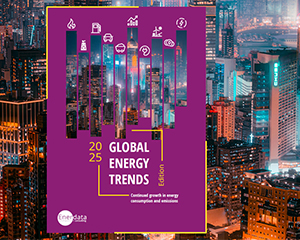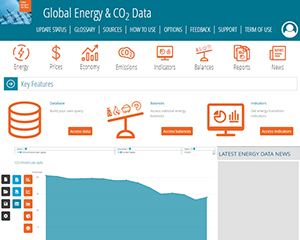LNG 무역수지
2024년 EU의 LNG 수출량은 15% 감소했지만 2019년 수준보다 30% 높게 유지되었습니다.
국가 별 내역 (bcm)
Loading...
세계
지역별 내역 (2024) - bcm
Loading...
2025년 글로벌 에너지 동향은 핵심 에너지 데이터에 대한 인사이트를 제공합니다
우리는 이러한 결과를 장기적인 기후 목표와 관련하여 분석했습니다.
- 2050년 목표를 달성하기 위해 노력을 더 기울여야 할 지역은 어디입니까?
- 유럽이 파리협정 목표 달성에 어려움을 겪는 근본적인 원인은 무엇입니까?
- 기후 변화 완화에 실질적으로 기여하고 있는 지역은 어디입니까?
Need more data? All the information presented in this energy data tool are extracted from Global Energy & CO2 Data service, the most comprehensive and up-to-date database on all gas states and sources: natural, manufactured and LNG. Access to the whole gas value chain information: reserves, production, trade, LNG liquefaction capacities, prices, consumption per sector and indicators.
서비스 소개


